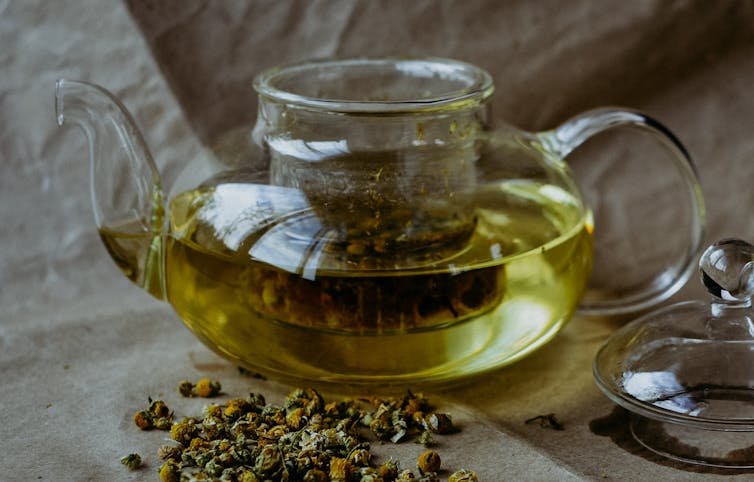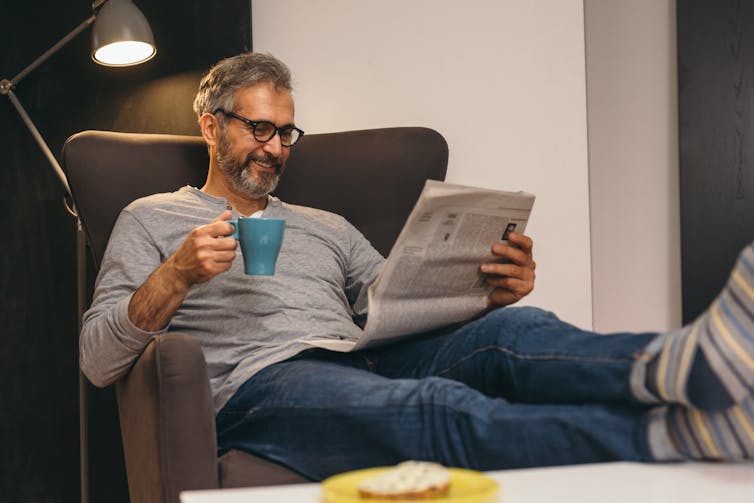Having trouble sleeping? Here's the science on 3 traditional bedtime remedies
- Written by Nenad Naumovski, Associate Professor in Food Science and Human Nutrition, University of Canberra
Sleep is essential for good health. Poor sleep quality, or not enough sleep, can negatively affect our mood, cognitive function, and immune system.
Stress can impact our sleep, and stress and anxiety associated with the COVID pandemic have meant many of us are not sleeping as well as we used to. A survey of 2,555 people across 63 countries found 47% of people were experiencing poorer sleep than usual during the pandemic, compared with 25% before COVID hit.
We also know stress is associated with poor dietary habits. People who are feeling stressed and tired may be more likely to reach for energy drinks and caffeinated beverages. But a high intake of caffeine as well as sugar-sweetened and energy drinks can keep us awake. So it’s something of a vicious cycle.
Similarly, people who are feeling stressed may be more likely to drink alcohol. Alcohol before bed, especially in excess, can also disrupt our sleep.
So what can you drink to improve your sleep?
Chamomile
Chamomile tea has been used in traditional medicine for centuries to treat a range of sleep ailments, such as insomnia.
The plant extract contains apigenin, a chemical compound that binds to the same receptors in the brain as benzodiazepines (drugs used to treat anxiety and insomnia), producing a sedative effect.
Read more: Can't sleep and feeling anxious about coronavirus? You're not alone
Studies have shown chamomile (consumed in the form of an extract or a tea) leads to significant improvement in sleep quality.
However, although the evidence is positive, these studies were relatively small and we need larger, well-designed clinical trials to reinforce these observations.
 If you’re having trouble sleeping, it might be worth trying a cup of chamomile tea before bed.
Irene Ivantsova/Unsplash
If you’re having trouble sleeping, it might be worth trying a cup of chamomile tea before bed.
Irene Ivantsova/Unsplash
Milk
A warm cup of cow’s milk is a popular bedtime beverage in Western cultures, particularly for children.
Milk is a source of the essential amino acid tryptophan, which our bodies need to produce compounds including serotonin and melatonin in the brain. These compounds are involved in the sleep-wake cycle, which could explain why milk helps us sleep better — if indeed it does.
Scientists have studied the effects of milk and milk products (such as yogurt and cheese) on sleep quality for decades, but the evidence is still inconclusive.
It may simply be the ritual of drinking warm milk before bedtime that relaxes the brain and body, rather than the effects of compounds present in the milk itself. We’ll need more research evidence before we can be confident one way or the other.
Read more: Get headaches? Here's five things to eat or avoid
Cocoa
Hot cocoa (commonly dissolved in milk) is also regarded as a sleep-promoting drink. The cocoa bean is a rich source of many beneficial chemicals, including compounds called flavonoids.
Flavonoids have a range of potential health benefits, and may be used to treat some neurodegenerative disorders.
There’s limited research on the effects of cocoa on sleep quality. But a study in mice suggested natural cocoa may improve stress-induced insomnia.
In humans, consuming cocoa is associated with a reduction in blood pressure (in healthy people and those with high blood pressure). This lowering of blood pressure, which relaxes the smooth muscles that line our arteries, could produce a calming effect, making it easier to go to sleep.
 Some people like to drink a glass of milk or a cup of cocoa before bed.
Shutterstock
Some people like to drink a glass of milk or a cup of cocoa before bed.
Shutterstock
While these sleep remedies are unlikely to be harmful, the overall evidence on improvement in quality of sleep is weak. You may like to try them, but you shouldn’t see any of them as a quick fix.
At the end of the day, several lifestyle factors can influence our sleep quality, including screen time, physical activity, stress and diet.
If you are consistently struggling to sleep, it’s best to consult with your general practitioner.
Read more: Why our brain needs sleep, and what happens if we don’t get enough of it
Authors: Nenad Naumovski, Associate Professor in Food Science and Human Nutrition, University of Canberra




